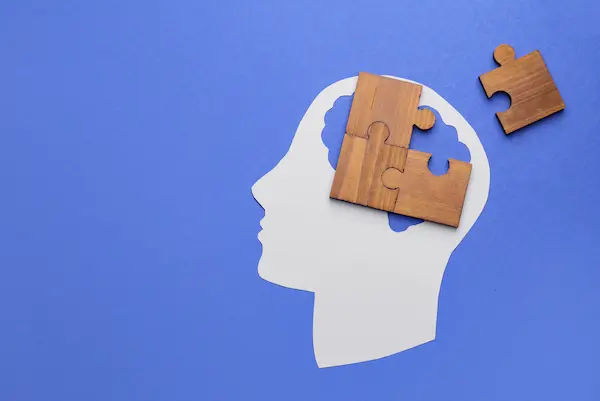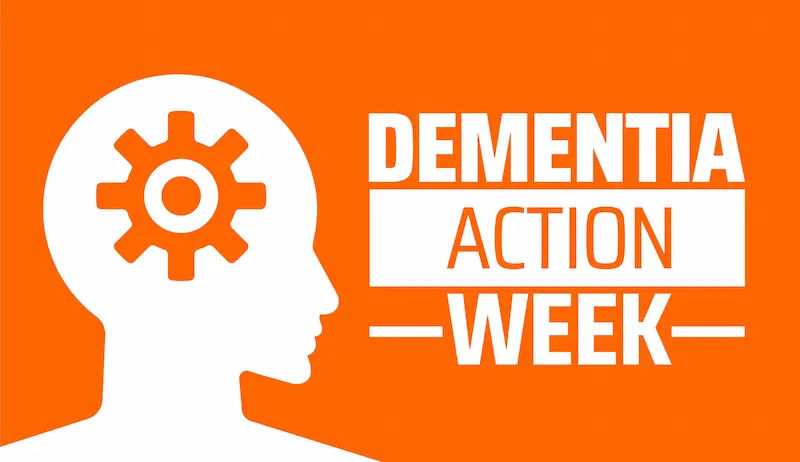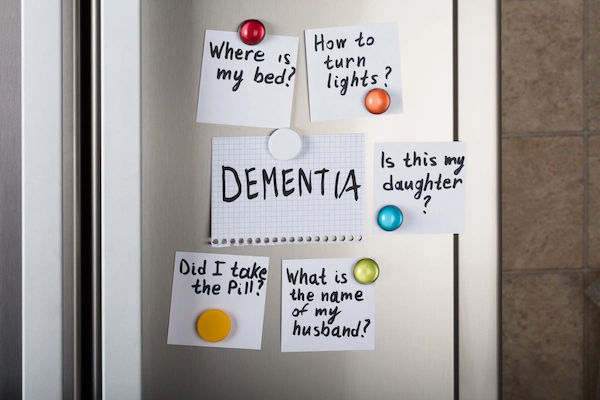Dementia Myths and Facts Separating Truth from Fiction
Uncover the truth about dementia by separating common myths from facts, helping you understand the condition better and support loved ones effectively.

Written by Dr. J T Hema Pratima
Reviewed by Dr. Shaik Abdul Kalam MD (Physician)
Last updated on 13th Jan, 2026
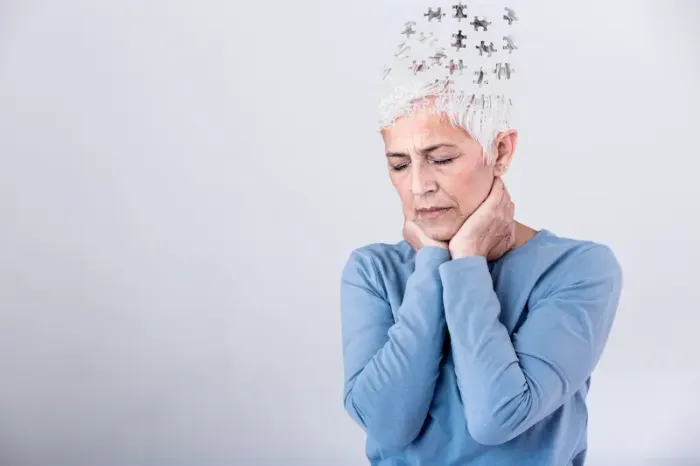
Introduction
When it comes to dementia, misinformation can be as damaging as the disease itself. Widespread myths and misconceptions often lead to stigma, delayed diagnosis, and unnecessary fear for individuals and families. Understanding the facts about dementia is the first step toward compassionate care, effective support, and proactive brain health. This complex set of conditions affects millions worldwide, yet it remains shrouded in mystery for many. Is it a normal part of aging? Is it always genetic? This article will dismantle the most common dementia myths and replace them with evidence-based facts. Our goal is to empower you with knowledge, reduce anxiety, and provide a clear-eyed view of what dementia is and what it isn’t. By separating fiction from reality, we can foster a more supportive environment for those living with dementia and their loved ones, and better understand the real possibilities for prevention and management.
Myth vs. Fact: The Core Misconceptions About Dementia
Let's tackle the most pervasive dementia myths head-on, using science and expert insight to reveal the truth.
Myth 1: "Dementia is an inevitable part of getting older."
Fact: This is perhaps the most harmful myth. While age is the biggest risk factor, dementia is not a normal part of aging. The World Health Organisation estimates that only 5-8% of people over 60 are affected by dementia. That means the vast majority of older adults do not develop it. Normal ageing might involve occasional forgetfulness, like misplacing keys, but it doesn’t disrupt daily life. Dementia, on the other hand, represents a significant cognitive decline that affects memory, reasoning, and the ability to perform everyday tasks. Understanding this distinction is crucial for recognising when to seek help. If you or a loved one are experiencing signs of cognitive decline that go beyond typical ageing, it’s important to consult a doctor.
Myth 2: "Dementia and Alzheimer's are the same thing."
Fact: This is a common point of confusion. Think of it this way: Dementia is the umbrella term for a set of symptoms, while Alzheimer's disease is the most common cause of those symptoms, accounting for 60-80% of cases. Other types include Vascular Dementia, Lewy Body Dementia, and Frontotemporal Dementia. Each has different underlying causes and symptom patterns. For example, Vascular Dementia is often linked to strokes, while Lewy Body Dementia may involve visual hallucinations and movement issues. Knowing the specific type is essential for proper management and treatment.
Myth 3: "Memory loss always means dementia."
Fact: Not all memory loss is a sign of dementia. Many reversible conditions can mimic dementia symptoms, such as vitamin B12 deficiency, thyroid problems, dehydration, or medication side effects. Additionally, Mild Cognitive Impairment (MCI) is a condition involving memory or thinking problems that are more serious than normal ageing but not severe enough to be diagnosed as dementia. Only a comprehensive medical evaluation, which may include blood tests and brain imaging, can determine the cause. Apollo24|7 offers convenient home collection for tests like vitamin B12 or thyroid panels to help rule out other causes.
Myth 4: "Dementia only affects memory."
Fact: Memory loss is a hallmark symptom, but dementia impacts far more. It can affect:
• Communication: Difficulty finding the right words.
• Judgment and Reasoning: Poor decision-making.
• Visual Perception: Trouble interpreting visual information.
• Personality and Behaviour: Increased anxiety, agitation, or depression.
For instance, someone with Frontotemporal Dementia may experience dramatic personality changes long before any significant memory loss occurs.
Myth 5: "There's nothing you can do to reduce your risk."
Fact: While there's no guaranteed way to prevent all types of dementia, research shows that up to 40% of dementia cases might be prevented or delayed by addressing modifiable risk factors. This is one of the most empowering facts about brain health. Key strategies include managing blood pressure and diabetes, staying physically active, eating a heart-healthy diet (like the Mediterranean diet), not smoking, limiting alcohol, and staying socially and mentally active.
Get Your Health Assessed
Beyond Memory: Understanding the Different Faces of Dementia
To fully grasp the facts, it's helpful to understand the main types of dementia. This knowledge helps explain why symptoms can vary so greatly from person to person.
Alzheimer's Disease: The Most Common Culprit
Alzheimer's is characterised by the buildup of amyloid plaques and tau tangles in the brain, which disrupt communication between brain cells. It typically begins with difficulty remembering new information and gradually progresses to impairing judgment, disorientation, and behaviour changes.
Vascular Dementia: When Blood Flow is the Issue
This type occurs due to impaired blood flow to the brain, often after a stroke or series of "mini-strokes." Symptoms can appear suddenly and may affect planning, judgment, and organisation more prominently than memory in the early stages.
Lewy Body Dementia: More Than Just Memory
Lewy Body Dementia is associated with abnormal protein deposits called Lewy bodies. Unique symptoms include visual hallucinations, sleep disturbances (like acting out dreams), and movement problems similar to Parkinson's disease. Memory may be less affected initially compared to Alzheimer's.
Frontotemporal Dementia: The Personality Change
This group of disorders primarily affects the frontal and temporal lobes of the brain, areas responsible for personality, behaviour, and language. It often strikes at a younger age (40s-60s) and can lead to significant changes in social conduct, empathy, and language skills, while memory often remains relatively intact in the early years.
Consult a Neurologist for the best advice
Lifestyle and Prevention: What the Science Really Says
The idea that we are powerless against dementia is a myth. A growing body of evidence points to concrete steps we can take to support our brain health.
The Pillars of Brain Health: Diet, Exercise, and Sleep
• Diet: The MIND diet (a hybrid of the Mediterranean and DASH diets) has been shown to slow cognitive decline. It emphasises berries, leafy greens, nuts, and whole grains.
• Exercise: Regular physical activity increases blood flow to the brain and encourages the growth of new brain cells. Aim for at least 150 minutes of moderate exercise per week.
• Sleep: Quality sleep is essential for the brain to clear out toxins. Chronic sleep deprivation is a significant risk factor for cognitive decline.
The Power of Social and Cognitive Engagement
Staying socially connected and mentally challenged builds "cognitive reserve." Learning new skills, reading, playing games, and maintaining strong social networks create more connections between brain cells, making your brain more resilient to damage.
Living Well with Dementia: Hope, Treatment, and Support
A diagnosis is not the end. While most dementias are progressive and currently have no cure, there is much that can be done to manage symptoms and maintain quality of life.
Available Treatments: Managing Symptoms, Not Just a Cure
Medications like cholinesterase inhibitors can help manage memory and thinking symptoms for some people, especially in Alzheimer's and Lewy Body Dementia. Other medications can address mood swings, depression, or sleep problems. Non-drug approaches, such as cognitive stimulation therapy and music therapy, are also highly beneficial.
The Critical Role of Caregiver Support
Caring for someone with dementia can be challenging. Caregiver burnout is a real and serious issue. It is vital for caregivers to seek support through local groups, online forums, and respite care. Taking care of your own health is not selfish; it's necessary to provide the best care for your loved one. If the stress of caregiving is affecting your health, consider speaking with a mental health professional via Apollo24|7.
Conclusion: Empowerment Through Knowledge
Dispelling the myths surrounding dementia is a powerful act. It replaces fear with understanding, stigma with compassion, and helplessness with proactive strategies. By focusing on the facts, we can change the narrative around this condition. We can advocate for timely diagnoses, support groundbreaking research, and create communities that are inclusive and supportive for those living with dementia and their families. Remember, knowledge is the best tool we have. Share what you've learned, challenge misconceptions when you hear them, and take positive steps to protect your own brain health. If you have concerns about your memory or that of a loved one, the most important step is to seek professional medical advice.
Consult a Neurologist for the best advice
Consult a Neurologist for the best advice

Dr. Aditendraditya Singh Bhati
Neurosurgeon
21 Years • MBBS(2004), DNB Neurosurgery(2014); MNAMS; Fellow Skull Base Endoscopy (Italy), Fellow Extended Skull Base ( Weill Cornell, USA), Fellow ZAP-X Radiosurgery. Member of American Association of Neurological Surgeons
Delhi
Apollo Hospitals Indraprastha, Delhi
(125+ Patients)

Dr. Ganeshgouda Majigoudra
Neurologist
10 Years • MBBS, MD ( GENERAL MEDICINE) DM (NEUROLOGY)
Bengaluru
Apollo Clinic, JP nagar, Bengaluru

Dr. E Prabhakar Sastry
General Physician/ Internal Medicine Specialist
40 Years • MD(Internal Medicine)
Manikonda Jagir
Apollo Clinic, Manikonda, Manikonda Jagir
(175+ Patients)
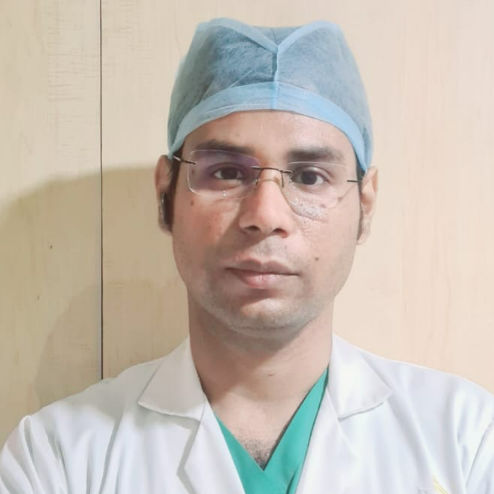
Dr Debnath Dwaipayan
Neurosurgeon
9 Years • MBBS, MS(Gen. Surgery), DrNB (Neurosurgery)
Delhi
Apollo Hospitals Indraprastha, Delhi

Dr. Anusha D
Neurologist
16 Years • MBBS, MD, DM (Neuro), DNB (Neuro)
Chennai
Apollo Speciality Hospitals OMR, Chennai
(125+ Patients)
Consult a Neurologist for the best advice

Dr. Aditendraditya Singh Bhati
Neurosurgeon
21 Years • MBBS(2004), DNB Neurosurgery(2014); MNAMS; Fellow Skull Base Endoscopy (Italy), Fellow Extended Skull Base ( Weill Cornell, USA), Fellow ZAP-X Radiosurgery. Member of American Association of Neurological Surgeons
Delhi
Apollo Hospitals Indraprastha, Delhi
(125+ Patients)

Dr. Ganeshgouda Majigoudra
Neurologist
10 Years • MBBS, MD ( GENERAL MEDICINE) DM (NEUROLOGY)
Bengaluru
Apollo Clinic, JP nagar, Bengaluru

Dr. E Prabhakar Sastry
General Physician/ Internal Medicine Specialist
40 Years • MD(Internal Medicine)
Manikonda Jagir
Apollo Clinic, Manikonda, Manikonda Jagir
(175+ Patients)

Dr Debnath Dwaipayan
Neurosurgeon
9 Years • MBBS, MS(Gen. Surgery), DrNB (Neurosurgery)
Delhi
Apollo Hospitals Indraprastha, Delhi

Dr. Anusha D
Neurologist
16 Years • MBBS, MD, DM (Neuro), DNB (Neuro)
Chennai
Apollo Speciality Hospitals OMR, Chennai
(125+ Patients)
More articles from Dementia
Frequently Asked Questions
1. What are the early signs of dementia vs. normal aging?
Normal ageing might involve occasionally forgetting a name but remembering it later. Early signs of dementia are more disruptive, like forgetting recently learned information, struggling to complete familiar tasks (e.g., managing a budget), or getting lost in a familiar neighborhood.
2. Is dementia hereditary?
In most cases, the direct genetic link is not strong. However, having a family history does increase your risk. For a very small percentage of people with early-onset Alzheimer's, a specific genetic mutation is the direct cause. A doctor can help you understand your personal risk factors.
3. Can you prevent dementia?
You can't guarantee prevention, but you can significantly reduce your risk. Focusing on a heart-healthy lifestyle, managing blood pressure, not smoking, exercising regularly, and eating a balanced diet is the best-known strategy for reducing dementia risk.
4. How is dementia diagnosed?
There is no single test. Diagnosis involves a detailed assessment, including medical history, physical and neurological exams, blood tests (to rule out other causes), and cognitive tests assessing memory and thinking. Brain imaging like an MRI or CT scan may also be used.
5. What is the life expectancy for someone with dementia?
This varies greatly depending on the type of dementia, age at diagnosis, and overall health. On average, a person may live 4 to 8 years after diagnosis, but some can live for 20 years or more. The focus should be on quality of life, not just quantity.



